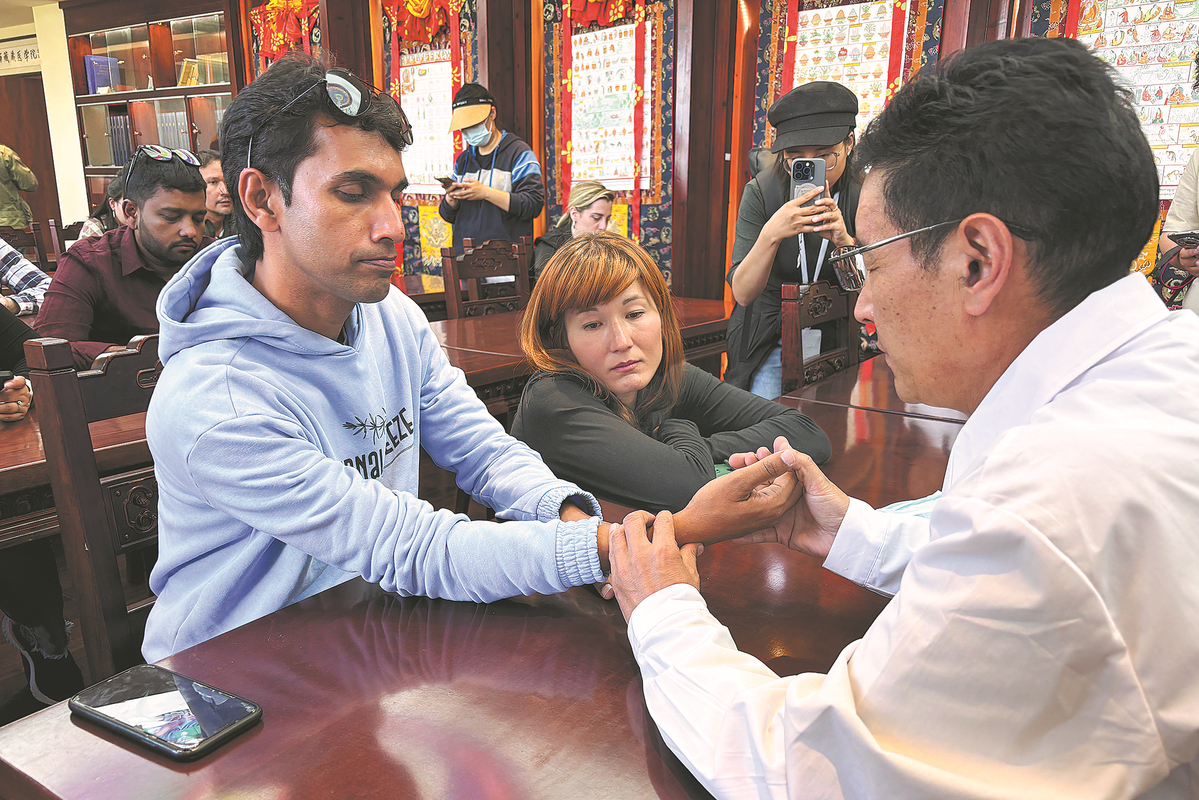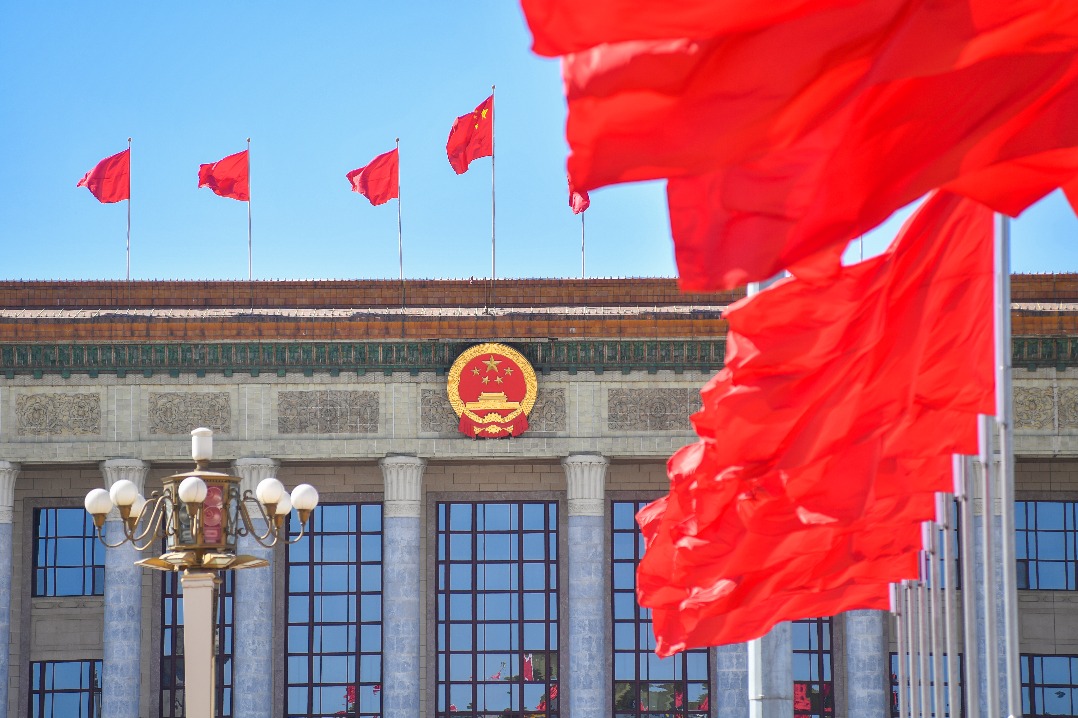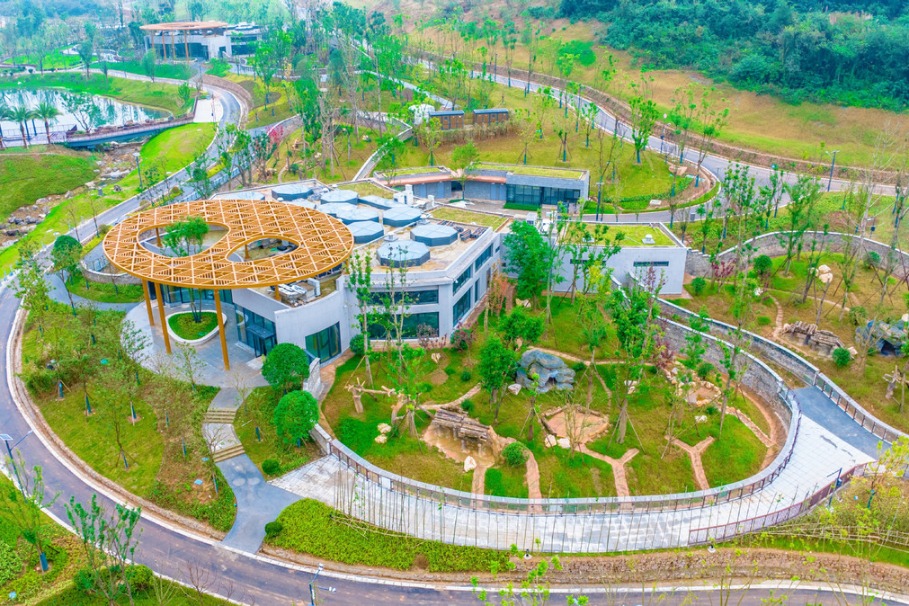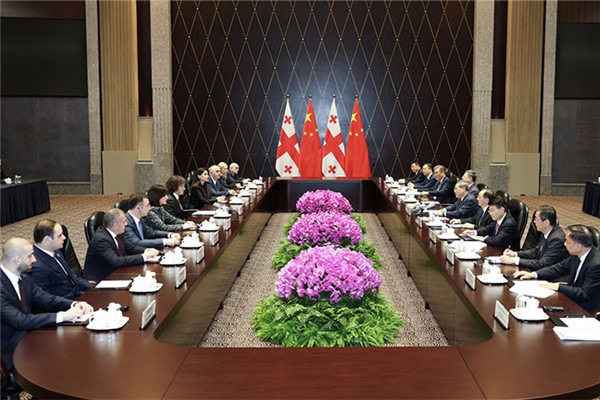University makes strides in traditional Tibetan medicine, education


In recent years, the Xizang University of Tibetan Medicine has achieved a series of accomplishments in inheriting and developing traditional Tibetan medicinal culture, an official of the university has told a delegation of foreign media and think tanks recently.
The delegation, comprising 15 individuals from eight countries — Russia, Japan, India, Thailand, Sri Lanka, Mongolia, Switzerland and Nepal — visited the Nyingchi and Lhasa cities of the Xizang autonomous region from Tuesday to Thursday.
They visited the university on Thursday and interacted with the university officials.
During the interviews, university officials said that the university has recently passed the undergraduate education teaching assessment conducted by an expert team dispatched from the Ministry of Education.
"Experts of the team comprehensively evaluated our faculty, teaching conditions and standards, affirming that the university has reached the national undergraduate education teaching level and giving us high praises," said Dorje Rinchen, vice-president of the university.
Dorje Rinchen said that in April, another stunning achievement of the university was the official publishing of a series of postgraduate textbooks on Tibetan medicine, filling the educational gap of the subject.
The university has already developed textbooks for Tibetan medicine undergraduate students, with most of the texts written in Tibetan. Some materials for undergraduate students have been translated into Mandarin.
The scale of the university has been steadily expanded thanks to the continuous support from the government. This year, the new campus of the university will start operation from the autumn semester, he said.
"The university has also made a breakthrough in cross-provincial students enrollment. The quota of annual enrollment from Tibetan communities from other provinces has increased from a previous average of 30 to 120 students this year," he said, adding this will benefit more students from other Tibetan communities to study Tibetan medicine in Xizang.
"All these achievements will serve as a gift to commemorate the 60th anniversary of the establishment of the Xizang autonomous region," he added.
As the highest-level university in China for teaching and research of Tibetan medical science, the Xizang University of Tibetan Medicine boasts a comprehensive education system offering bachelor's, master's and doctoral degrees. It currently has over 2,700 students, including approximately 2,300 undergraduates.
This university has nurtured nearly 8,000 graduates who have made significant contributions to Tibetan communities nationwide, particularly in many rural areas.
S.L. Kanthan, an Indian geopolitical analyst and a writer, who was a member of the visiting delegation, praised China's policies on the preservation and practice of Tibetan culture, language, ethnic customs, especially the inheritance of Tibetan medicine.
"You can see the Tibetan language and culture everywhere: the dance, the music, the dress, the architecture, the buildings and the medicine," he said.
China has done a great job in preserving the cultures of the ethnic group, he added.




































